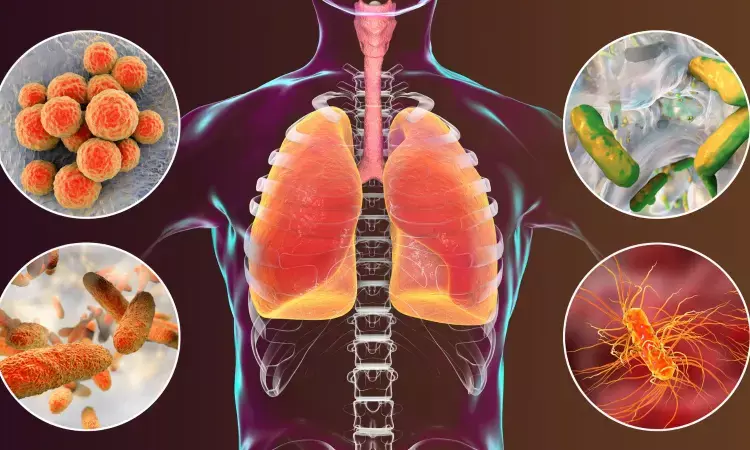- Home
- Medical news & Guidelines
- Anesthesiology
- Cardiology and CTVS
- Critical Care
- Dentistry
- Dermatology
- Diabetes and Endocrinology
- ENT
- Gastroenterology
- Medicine
- Nephrology
- Neurology
- Obstretics-Gynaecology
- Oncology
- Ophthalmology
- Orthopaedics
- Pediatrics-Neonatology
- Psychiatry
- Pulmonology
- Radiology
- Surgery
- Urology
- Laboratory Medicine
- Diet
- Nursing
- Paramedical
- Physiotherapy
- Health news
- Fact Check
- Bone Health Fact Check
- Brain Health Fact Check
- Cancer Related Fact Check
- Child Care Fact Check
- Dental and oral health fact check
- Diabetes and metabolic health fact check
- Diet and Nutrition Fact Check
- Eye and ENT Care Fact Check
- Fitness fact check
- Gut health fact check
- Heart health fact check
- Kidney health fact check
- Medical education fact check
- Men's health fact check
- Respiratory fact check
- Skin and hair care fact check
- Vaccine and Immunization fact check
- Women's health fact check
- AYUSH
- State News
- Andaman and Nicobar Islands
- Andhra Pradesh
- Arunachal Pradesh
- Assam
- Bihar
- Chandigarh
- Chattisgarh
- Dadra and Nagar Haveli
- Daman and Diu
- Delhi
- Goa
- Gujarat
- Haryana
- Himachal Pradesh
- Jammu & Kashmir
- Jharkhand
- Karnataka
- Kerala
- Ladakh
- Lakshadweep
- Madhya Pradesh
- Maharashtra
- Manipur
- Meghalaya
- Mizoram
- Nagaland
- Odisha
- Puducherry
- Punjab
- Rajasthan
- Sikkim
- Tamil Nadu
- Telangana
- Tripura
- Uttar Pradesh
- Uttrakhand
- West Bengal
- Medical Education
- Industry
Add on clarithromycin to standard of care may attenuate inflammatory burden of community-acquired pneumonia: Study

Add on clarithromycin to the standard of care may attenuate the inflammatory burden of community-acquired pneumonia suggests a new study published in The Lancet Respiratory Medicine.
The addition of macrolide antibiotics to β-lactam antibiotics for the treatment of patients in hospitals with community-acquired pneumonia is based on results from observational studies and meta-analyses rather than randomised clinical trials. They investigated if the addition of the macrolide clarithromycin to treatment with a β-lactam antibiotic in this population could improve early clinical response—the new regulatory endpoint for community-acquired pneumonia—and explored the possible contribution of modulation of the inflammatory host response to that outcome. The ACCESS trial was a phase 3 prospective, double-blind, randomised controlled trial, in which adults in hospital with community-acquired pneumonia who had systemic inflammatory response syndrome, Sequential Organ Failure Assessment (SOFA) score of 2 or more, and procalcitonin 0·25 ng/mL or more were enrolled in 18 internal medicine departments of public Greek hospitals. Patients were randomly assigned (1:1) by computer-generated block randomisation to standard-of-care medication (including intravenous administration of a third-generation cephalosporin or intravenous administration of β-lactam plus β-lactamase inhibitor combination) plus either oral placebo or oral clarithromycin 500 mg twice daily for 7 days. Investigators, staff, and patients were masked to group allocation.
The primary composite endpoint required that patients fulfilled both of the following conditions after 72 hours (ie, day 4 of treatment): (1) decrease in respiratory symptom severity score of 50% or more as an indicator of early clinical response and (2) decrease in SOFA score of at least 30% or favourable procalcitonin kinetics (defined as ≥80% decrease from baseline or procalcitonin <0·25 ng/mL), or both, as an indicator of early inflammatory response. Participants who were randomly assigned and received allocated treatment were included in the primary analysis population. Patients were enrolled between Jan 25, 2021, and April 11, 2023, and 278 individuals were randomly allocated to receive standard of care in combination with either clarithromycin (n=139) or placebo (n=139). 134 patients in the clarithromycin group (five withdrew consent) and 133 patients in the placebo group (six withdrew consent) were included in the analysis of the primary endpoint.
The primary endpoint was met in 91 (68%) patients in the clarithromycin group and 51 (38%) patients in the placebo group. Serious treatment-emergent adverse events (TEAEs) occurred in 58 (43%) patients in the clarithromycin group and 70 (53%) patients in the placebo group. None of the serious TEAEs was judged to be related to treatment assignment. The addition of clarithromycin to the standard of care enhances early clinical response and attenuates the inflammatory burden of community-acquired pneumonia. The mechanism of benefit is associated with changes in the immune response. These findings suggest the importance of adding clarithromycin to β-lactams for the treatment of patients in hospitals with community-acquired pneumonia to achieve early clinical response and early decrease of the inflammatory burden.
Reference:
Evangelos J Giamarellos-Bourboulis, Athanasios Siampanos, Amalia Bolanou, Sarantia Doulou, Nikolaos Kakavoulis, Konstantinos Tsiakos, Sokratis Katopodis, Georgios Schinas, Lamprini Skorda, Zoi Alexiou, Konstantinos Armenis, Paraskevi Katsaounou, George Chrysos, Aikaterini Masgala, Garyphalia Poulakou, Nikolaos Antonakos, Asimina Safarika, Miltiades Kyprianou, Konstantina Dakou, Styliani Gerakari, Ilias C Papanikolaou, Haralampos Milionis, Markos Marangos, George N Dalekos, Vasiliki Tzavara, Karolina Akinosoglou, Eryfilli Hatziaggelaki, Styliani Sympardi, Theano Kontopoulou, Maria Mouktaroudi, Antonios Papadopoulos, Michael S Niederman. Clarithromycin for early anti-inflammatory responses in community-acquired pneumonia in Greece (ACCESS): a randomised, double-blind, placebo-controlled trial. The Lancet Respiratory Medicine. 2024, ISSN 2213-2600. https://doi.org/10.1016/S2213-2600(23)00412-5. (https://www.sciencedirect.com/science/article/pii/S2213260023004125)
Dr. Shravani Dali has completed her BDS from Pravara institute of medical sciences, loni. Following which she extensively worked in the healthcare sector for 2+ years. She has been actively involved in writing blogs in field of health and wellness. Currently she is pursuing her Masters of public health-health administration from Tata institute of social sciences. She can be contacted at editorial@medicaldialogues.in.
Dr Kamal Kant Kohli-MBBS, DTCD- a chest specialist with more than 30 years of practice and a flair for writing clinical articles, Dr Kamal Kant Kohli joined Medical Dialogues as a Chief Editor of Medical News. Besides writing articles, as an editor, he proofreads and verifies all the medical content published on Medical Dialogues including those coming from journals, studies,medical conferences,guidelines etc. Email: drkohli@medicaldialogues.in. Contact no. 011-43720751


